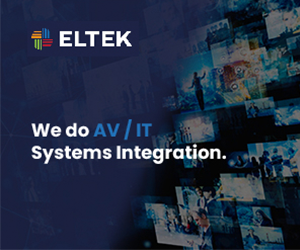:quality(80)/business-review.eu/wp-content/uploads/2023/04/insurance.png)
ESI (Employer-sponsored health insurance) is a type of health insurance coverage provided by employers to their employees. It’s an essential component of the United States healthcare system, with approximately 49% of Americans receiving health insurance through their employer.
In this article, we will explore the impact of ESI on job change and the job market, highlighting the benefits and challenges of this type of coverage.
ESI and Job Change
When employees leave their jobs, they may be able to continue their health insurance coverage through a program called COBRA. COBRA allows individuals to maintain their group health insurance plan for up to 18 months after leaving their job. However, the costs of continuing with COBRA coverage can be significant, as the employee is responsible for paying the full cost of the insurance premium between jobs.
The availability of ESI can have a significant impact on an employee’s decision to change jobs. Employees may choose to stay with their current employer, even if they are unhappy because they do not want to lose their health insurance coverage. Conversely, employees may be more likely to leave a job that does not offer health insurance or offers inadequate coverage.
A recent study found that employees who were offered health insurance by their employer were more likely to stay on the job compared to those who were not. Additionally, employees who were not offered health insurance were more likely to actively search for a new job with better benefits.
ESI and the Job Market
ESI can also have a significant impact on the job market. Employers who offer comprehensive health insurance coverage may be more likely to attract and retain top talent, as employees value health benefits highly. A recent survey found that 61% of employees consider health insurance to be the most important employee benefit.
Furthermore, the cost of health insurance can be a significant expense for both employers and employees. Employers may be more likely to offer competitive wages if they can offset some of the cost of health insurance through a group plan. Conversely, employees may be more likely to accept a job with lower wages if the employer offers comprehensive health insurance coverage.
However, certain industries, such as retail and hospitality, may not offer health insurance coverage due to the high cost of providing coverage to a large number of employees. It can create a situation where employees in these industries may have limited access to affordable health insurance coverage.
Benefits of ESI for Employers
There are many benefits of offering ESI for employers. First and foremost, providing health insurance coverage can improve employee productivity and job satisfaction. Employees who have access to comprehensive health insurance are more likely to seek preventive care and address health issues before they become more serious, which can lead to less absenteeism and higher productivity.
Additionally, offering comprehensive health insurance can be a way for employers to differentiate themselves from competitors and attract top talent. A recent survey found that 46% of employees would choose a job with lower pay but better health insurance benefits.
Furthermore, offering ESI can lead to lower turnover rates and decreased recruitment costs. Employees who are satisfied with their health insurance coverage are more likely to stay with their employer long-term, which can save the employer money on recruitment and training costs.
Benefits of ESI for Employees
Perhaps most importantly, ESI provides access to affordable healthcare services. Group plans are typically less expensive than individual plans, as the risk is spread across a larger pool of individuals.
Additionally, ESI can protect employees from high medical costs in the event of a serious illness or injury. Comprehensive health insurance coverage can provide financial protection and peace of mind for employees and their families.
Finally, ESI can improve the overall well-being and quality of life of employees. Workers who have access to comprehensive health insurance are more likely to seek preventive care and address health issues before they become more serious, which can lead to improved health outcomes and a better quality of life.
Challenges of ESI
Despite the benefits of ESI, there are also significant challenges. One of the biggest challenges is rising healthcare costs, which can lead to increased premiums for employers and employees. It can make it difficult for employers to continue offering comprehensive health insurance coverage and for employees to afford coverage, especially if they are on a low income.
Another challenge is the lack of ESI options for part-time and contract workers. These employees may not be eligible for health insurance coverage through their employer, leaving them with limited options for affordable healthcare.
There can be inequities in ESI access and coverage with certain groups, such as low-income individuals and people with pre-existing conditions, having limited access to comprehensive health insurance coverage.
Policy Implications and Recommendations
Given the challenges of ESI, there is a need for healthcare policy reform to ensure equitable access to ESI. Policymakers can work to address rising healthcare costs through measures such as increasing competition in the healthcare market, negotiating drug prices, and investing in preventive care.
Furthermore, employers can take steps to improve their ESI offerings, such as providing wellness programs, flexible spending accounts, and access to telemedicine services. Employers can also consider partnering with other companies to create a larger pool of individuals and negotiate better rates for health insurance coverage.
Finally, there have been successful policy interventions to improve access to ESI, such as the Affordable Care Act (ACA), which expanded access to health insurance coverage for low-income individuals and people with pre-existing conditions. Policymakers can continue to build on the successes of the ACA to ensure that all Americans have access to comprehensive health insurance coverage.
Conclusion
In conclusion, ESI is a critical component of the United States healthcare system and has significant impacts on job change and the job market. Employers who offer comprehensive health insurance coverage can attract and retain top talent, while employees who have access to affordable healthcare services can improve their overall well-being and quality of life.
However, there are also significant challenges, including rising healthcare costs, limited access to coverage for part-time and contract workers, and inequities in access and coverage. Policymakers and employers must work together to address these challenges and ensure equitable access to comprehensive health insurance coverage for all Americans.



:quality(80)/business-review.eu/wp-content/uploads/2015/07/facebook.jpg)




:quality(80)/business-review.eu/wp-content/uploads/2021/08/Piata-Unirii-la-Gala-de-inchidere-TIFF-2021-Foto-Marius-Maris.jpg)

:quality(80)/business-review.eu/wp-content/uploads/2023/06/COVER-1.jpg)




:quality(50)/business-review.eu/wp-content/uploads/2022/08/unnamed-2-1.png)
:quality(80)/business-review.eu/wp-content/uploads/2023/06/print-may-2.jpg)

:quality(50)/business-review.eu/wp-content/uploads/2023/06/buy-instagram-likes.png)
:quality(50)/business-review.eu/wp-content/uploads/2022/01/Gabriel-Blanita-1099.jpg)
:quality(50)/business-review.eu/wp-content/uploads/2023/06/ADASTEC-buses-117749.jpg)